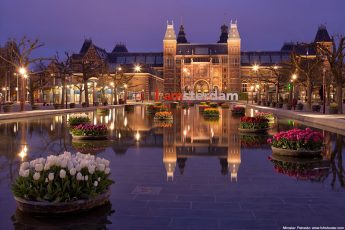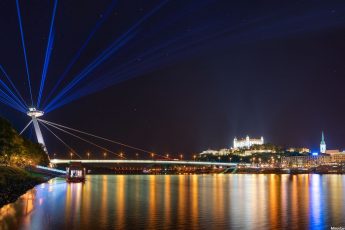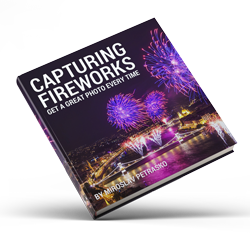There are some problems with HDR photos, and it’s sad that that’s how most HDR is characterized. And since I think, we all should strive for better results, and showing everyone that HDR can create stunning results if used correctly, here is a list of most common HDR mistakes, that I think one should avoid.
Before I get to the list, two more notes first. I will be using my older photos to illustrate the problems (as I did the mistakes myself at one time or another) so don’t expect any great photos here :). Secondly, if any of the results I describe here are the results you desire for your photos, that’s doesn’t mean you are doing it wrong, it just means you are going more towards the artistic HDR and that’s your decision. I would probably not like that, as I go more towards the realistic result, but again, style is very personal and is different for everyone, so keep doing what you like :).
That’s all for this, and let’s look at the list :)
1. Lost contrast
The most common problem I see all the time. It’s the result of what HDR is and why you actually using it. Just think about it. If you have a proper exposure for every part of the photo, there are no highlights and now shadows. And that’s actually what a HDR result is. But a photo like this is very bland and boring. Nothing stands out.
So the goal should be, that the shadow areas are still a little darker than the average area of the photo, and the bright areas are still a little brighter. With this, the contrast is still there, but you don’t have extremes. Also, the human eye is drawn to the highlight areas, and if you have none, it just moves randomly around the photo. And that’s not what you want.
Close to the lost of contrast, is also the lost of all shadows. There are very few instances when a scene has no shadows in it, and a photo looks just strange without any.
2. Too many saturated colors
First of all, I think that you can have saturated colors in photos. There are enough examples of objects , that are just very colorful. But, if the whole photo consists only from strongly saturated colors, this is very tiring for the viewers eyes, and one can’t look at it for a longer time. If you include areas where the saturation is not so high, the eyes can move to them, and rest for a while.
So having a nice balance, between saturated and unsaturated color, is the best way to go.
3. Too much detail
Similar to the colors, one can have also to much detail. Not every part of the photo has to be super detailed, and if one wants to highlight the subject, it’s even better if the remaining areas are a bit less detailed, so they don’t pull the focus away from the main subject.
The human brain does not work in absolutes. It compares stuff. So something looks the sharpest when there is something blurry near by. Something looks detailed, when there is something less detailed near by. And actually same goes for color saturation.
4. Light inversion
Another very often seen effect of HDR. This is when the dark parts of a the scene, are brighter than the light parts of the scene in the finished photo. This looks just strange and very artificial. If you want your photo to look realistic, the shadow areas should be darker than the light areas. Always.
5. Grey whites
This is also a classic result of HDR editing programs. What they do, is, that they try to darken the bright areas of a photo. But if an area is white, it can not be darkened while keeping it white, and from this the ugly grey color is created. Either don’t use HDR when taking photos of white objects, or blend the area back from the non-HDR photo.
6. Forgetting about composition
Just making a photo HDR, will not make the composition better. If you are shooting a normal or a HDR photo, the first step should always be to decide the composition. If that’s bad, HDR editing will not make the photo better. Feel free to go over my list of composition tips for more.
7. Bokeh HDR
A place where HDR just looks ugly is bokeh. The reason is simple. Where bokeh created a soft transition between shapes, HDR usually creates a hard, very defined transition. It’s always better not to create HDR from the out of focus areas of a photo, or blend them manually, not by using any of the HDR tone-mapping software.
8. Processing artifacts
There are many HDR processing software and many techniques on how to blend images. Each of them can create really ugly artifacts in a photo, hard transition, strange shadows, out of place outlines and much more. Usually when one sees this, one needs to tone down the settings in the respective software or play more with the masks when manually blending. It’s hard to get rid of them, once they appear, so try to avoid them as much as possible.
Also, photography errors, like chromatic aberrations, not properly focused areas and noise, are more visible after HDR processing and should be dealt with before one even goes into HDR processing.
9. Using HDR when it’s not needed
As with every technique, HDR is not always needed. Don’t force HDR on every photo. Especially photos of people are a great example, for when to avoid it. Some photos just look better, when there are strong shadows, overexposed areas, and lost detail. Photos, where you just want to show a feeling or mood, are the ones where you usually just don’t need HDR
10. Using HDR filters
A filter named HDR is not the same as a HDR photo. They usually create very grungy, unrealistic looking, a lot of times ugly, results. Even the better ones, can’t really have the best results, if they don’t have the information they need in the image file. And usually when one uses a filter like this, one does not have the brackets required for the dynamic range.
I personally try to avoid these, as a real HDR looks always better.
11. Just going overboard
One can use anything while editing photos, but everything should be used sparingly. Just throwing a bunch of filters on a photo, and thinking that that will make it great, never works.
For instance this photo. It’s just so over the top in detail, colors, just everything. I actually still like it, but probably only because it’s old and I’m nostalgic about it :)

And that’s all for this post and feel free to ask if you have any questions.
















Another great Top 11 list Miroslav, thank you! As you said up there, each one was a style and personal taste for the effects, but I think (in my personal opinion) that what make a HDR photo look like a real photo is moderation in technique, as you described. When that line is crossed we don’t know if we are before a CG illustration or a exaggerated photo… and this is bad.
Thank you Born :) I plan to do more posts like this (aka. reviews, tips, thoughts.. and so), so I’m glad to see that a lot of people like them.
And yeah.. style is very personal, but it’s bad when a technique is mostly represented with one style. That’s why I wrote this.
Hi Miroslav. I just want to be honest to say, that thanks to your work I started think, that HDR is a good way, how to create some types of photos (especially night ones). I dislike HDR-like fairy-tale-unreal images, and that’s why I didn’t like HDR style, generally. But when I saw your photos, I understood, that at last… someone uses it properly! Thank you for your great example! I’m very inspired by your work.
Man those HDR effects look ugly. And every time I google for HDR images, I get them. Always puzzled me why do people find them good. It looks like under effect of drugs.
I like when HDR used to add realism, but 99% seems to be that ugly drug effect. It looks like people using crappy photoshop preset or copycating from step-by-step tutorial instead of using their skill to make good image. And dont they just see it looks stupid.
Those people are giving HDR bad reputation, because everyone thing this is the only thing HDR can make. But it can be used to remove hotspots or super dark places, emulating eye adaptation effect that photo cameras don’t have.
Interesting thing, video games and CGI got the HDR effect right and use it how it supposed to be used, whereas photoshop users make that strange and bad looking effect.